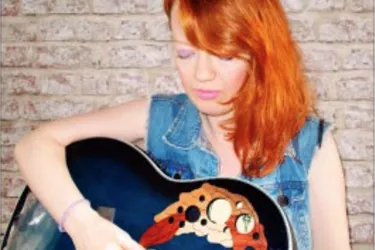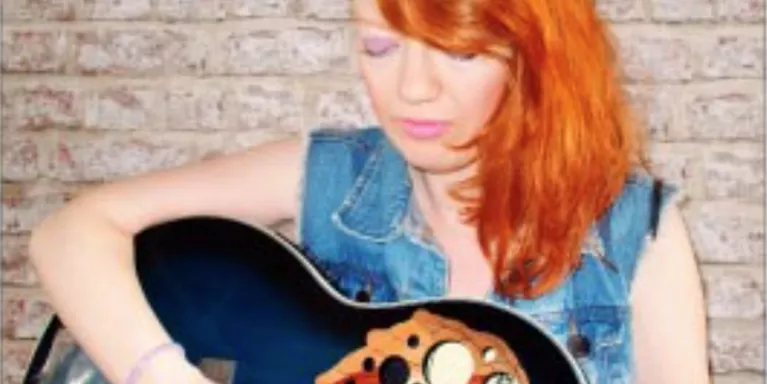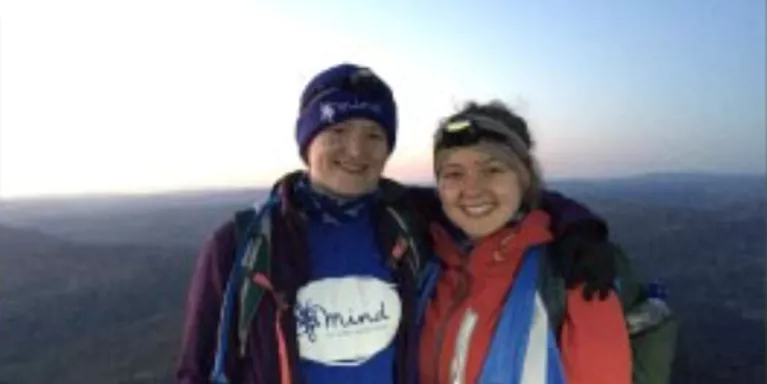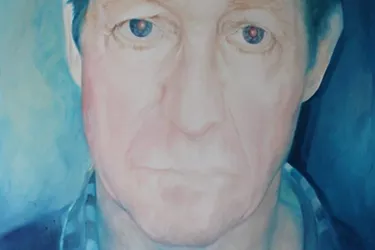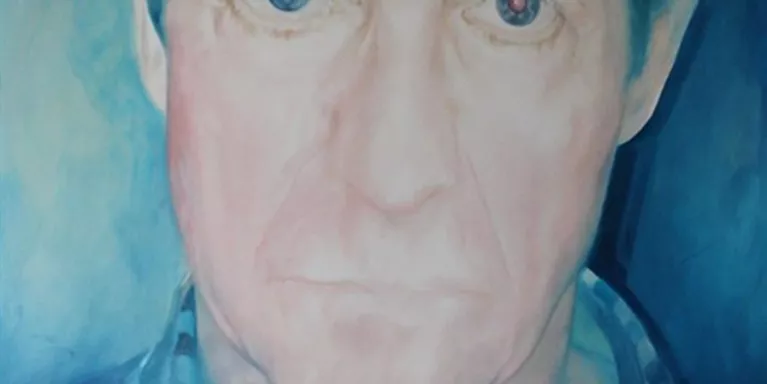My depression centre stage
Tim blogs on his battle with depression and how creating a theatre show about it with his fiancée helped others to speak out.
I’ve had 10 years now of not being quite sure how my brain works. I woke up when I was 22 years old and felt the 12 months or so of just feeling miserable hit me all at once, a conclusive punch in the face with proper sadness.
My experience of depression has gone from naivety of the power of it, to an unconscious buckling at the power of it, to admiring the power of it and working with it to try and come to a happy medium so we can both exist.
I was 22, had finished uni, had messed around travelling for a year and was a fun, optimistic, person who would say cocky stuff like “nothing fazes me mate”. Nothing did faze me really but I was quite a nice person.
That was the real me underneath that macho bravado, a nice lad who was lost in adulthood. Don’t get me wrong that is the same story for most kids, life’s a piss take and then you’re on your own; things can start not going as well as they usually do; you get a bit sad.
But this wasn’t just a bit sad.
"It was like an internal vacuum cleaner sucking my soul away, drawing my face in, bagging up my personality."
I got aggressive, had fights, drank more, did drugs, tried to fight it off in all the wrong ways. The problem was I didn’t know how to equip myself with all the right tools to slay it.
We weren’t told in school that there is a 1 in 4 chance that you will suffer from a mental health problem. Or that we might one day have an illness that can whisper to us suicidal thoughts. If I would have known at the time, I wouldn’t have fought, drank, done drugs. I would have told my family, my friends, my doctor. But there wasn’t just my lack of knowledge about the illness that was stopping me from speaking up, it was the thought that everyone would think that I was a wimp, “get on with it”, “life is hard” all the things that carry the stigma. Let’s face it, when you’re in your 20’s the number one thing that most of us want to do is have FUN. This is complete freedom from your parents and time to do what the hell you like. Opening up about depression to a group of 20 year olds felt like excluding myself permanently from a decade of fun, so I just didn’t. Fun was the only thing that kept me away from the pitch-black darkness in my head when I was alone.
I know now that that was the exact opposite of what I should have done.
"I wish I dealt with it head on and tried to get myself better before I let it completely move in."
The depression was hanging pictures on the wall of my skull when he could have just temporarily visited if I had just accepted it and talked about it.
I’m now touring a show with my soul guardian/soul mate/ baby mumma/beautiful fiancé about my experience with depression and how in particular we as blokes need to talk about our problems before it’s too late. 78% of suicides are men and this proportion has been the same for over a decade!
"It’s obvious not enough men allow themselves to talk about it, therefore going undiagnosed and untreated."
I always think about a certain person I know who just does not believe depression and I keep trying to come up with the best thing to say to him and I think I’ve just got it “if I’m not ill, how come taking a tablet is making me normal again, do you think a placebo is saving my life”? Or quite a more real and hard truth “what healthy minded person would take their own life just to relieve mental pain”. It’s a very real illness, it hurts more than any physical pain I’ve ever had.
The show has helped me so much.
"It’s been tough to be on stage talking about my own issues but it’s been a therapeutic rewarding ride."
I really had no idea when we first started how it would go down, but the stats were on my side and 40 depressed people out of the 100 could take on the other 60 easy. It turns out that everyone has been amazing, from people who also have depression, partners, mothers, dads. The feedback has been incredible really and it feels good. It helps a lot to know that the show is making people speak up and be proud in a way. We’ve had stories from people all over Australia and the UK. We’re all in it together and fingers crossed, the stigma will disappear if our fear of speaking the truth disappears.


Information and support
When you’re living with a mental health problem, or supporting someone who is, having access to the right information - about a condition, treatment options, or practical issues - is vital. Visit our information pages to find out more.
Share your story with others
Blogs and stories can show that people with mental health problems are cared about, understood and listened to. We can use it to challenge the status quo and change attitudes.










